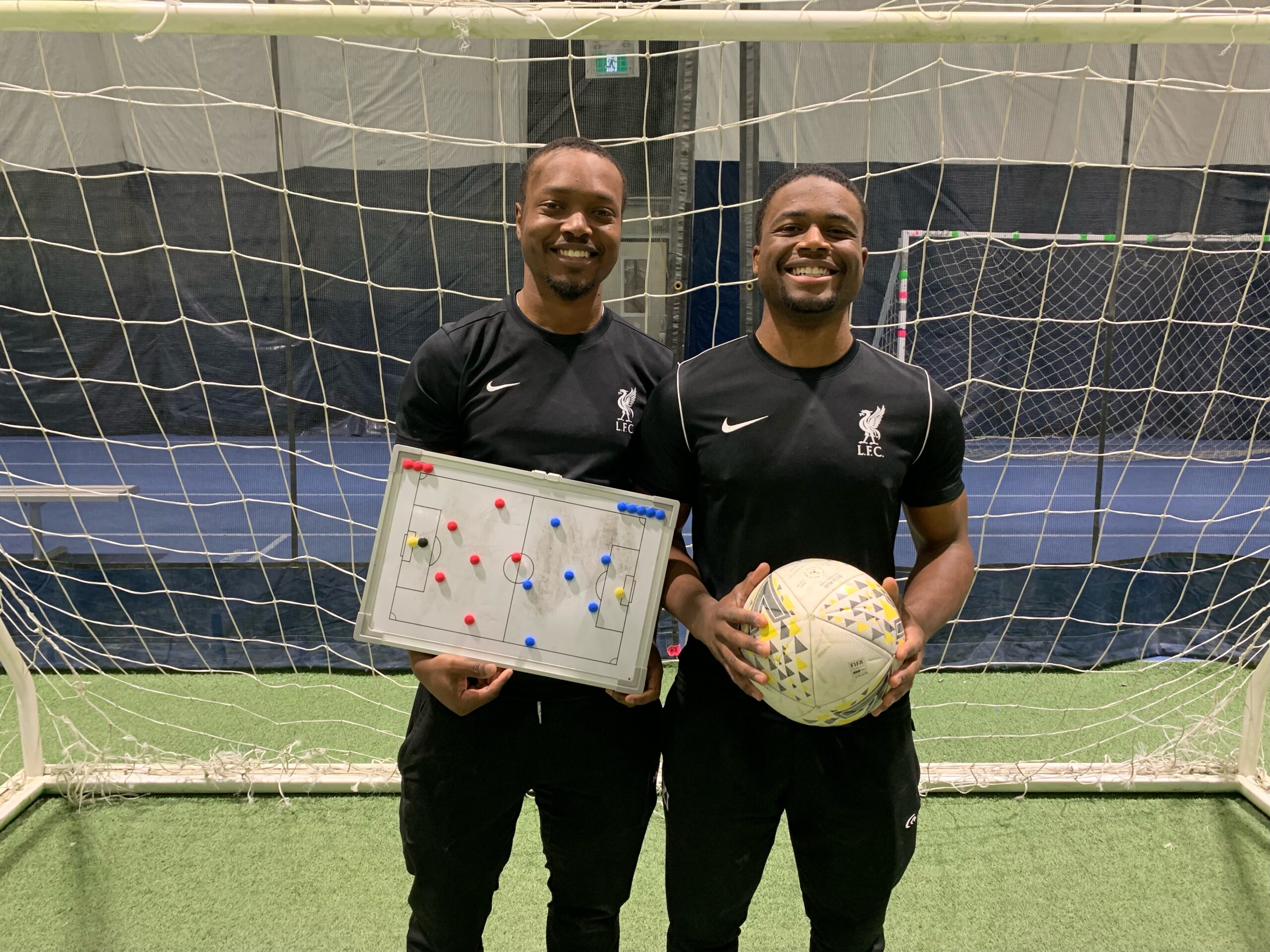Shaping people, not just players
Former UTM athletes-turned coaches Martin and Kevin Iyamabo explain the role of coaches in developing young athletes.
As the American poet and civil rights activist Maya Angelou once wrote, “I don’t believe an accident of birth makes people sisters or brothers. It makes them siblings, gives them mutuality of parentage. Sisterhood and brotherhood is a condition people have to work at.” For brothers Kevin and Martin Iyamabo, former UTM athletes-turned coaches, Angelou’s saying rings true.
Martin Iyamabo began his journey at the University of Toronto Mississauga in the fall of 2018 and playing an integral defensive role in the UTM varsity men’s soccer team. By the time Kevin joined his brother two years later, the university had suspended all varsity sports programs, and the pandemic-suspended tri-campus league meant the brothers never had the opportunity to play for the Eagles together.
Despite never playing on the same university team, soccer is something that has brought the Iyamabo brothers continually closer over the past few years. Both Martin and Kevin currently coach at Liverpool International Academy in Mississauga and Kevin also helps coach the UTM men’s tri-campus team. While they may support different professional clubs, watching games together helps them develop new tactics that they can implement in their own teams.
“Watching sports on TV – you see plays and movements that the ones on the field don’t,” explained Martin. “Many times you have to remind yourself that what they see is different and almost be another set of eyes that can guide them to the bigger picture.”
For Martin, the big picture doesn’t always mean winning or losing, but rather developing players for their future careers.
“For kids, there will always be those bigger or faster than the rest. Those are the ones I tend to focus on more because they have never had to adapt the way smaller players have,” emphasized Martin. “When everyone catches up with puberty, they are often the ones left behind because they never improved their other skills. I was never the most technical player, but I was good at reading the game and understanding decision-making. This influenced my coaching style as I focus a lot on making sure my players don’t just do something, but understand why they are doing it.”
But beyond their role in shaping players on the field, perhaps the desire to develop people off the field is the most admirable trait of the Iyamabos.
“The most enjoyable part is seeing the development of the kids not just as players, but as people as well. I joke with my friends that I have 30 kids,” laughed Martin. “They’re like an extended family and it’s a great feeling when you see the influence you have had as they grow up.”
Martin and Kevin’s experience as Black athletes have also played a role in defining their outlook on coaching.
“As a Black athlete, people expect you to be the fastest or strongest, and often pigeon-hole many of us into the same category of player,” said Martin. “I’ve seen many who have developed an over-reliance on this and have struggled later on because they never learned, or were taught, to expand their skillset because they were only valued for their physical abilities from a young age.”
“My point here is to not let other people pigeon-hole you. Work hard and ask questions. People will often look at you and think that you’re good enough or that physique is all you can provide. Always strive to go beyond just talent and learn the skills that others are not willing to teach you,” he concluded.
Sports & Health Editor (Volume 51) — Joseph is a recent graduate from UTM, having double-majored in Professional Writing & Communication and Political Science. During his time at UTM, he played on the men’s hockey and soccer teams and was actively involved in the campus’ sports community. Joseph is a strong advocate for a healthy lifestyle, and hopes that as Sports & Health Editor he can encourage students to get involved in campus sports and activities.

